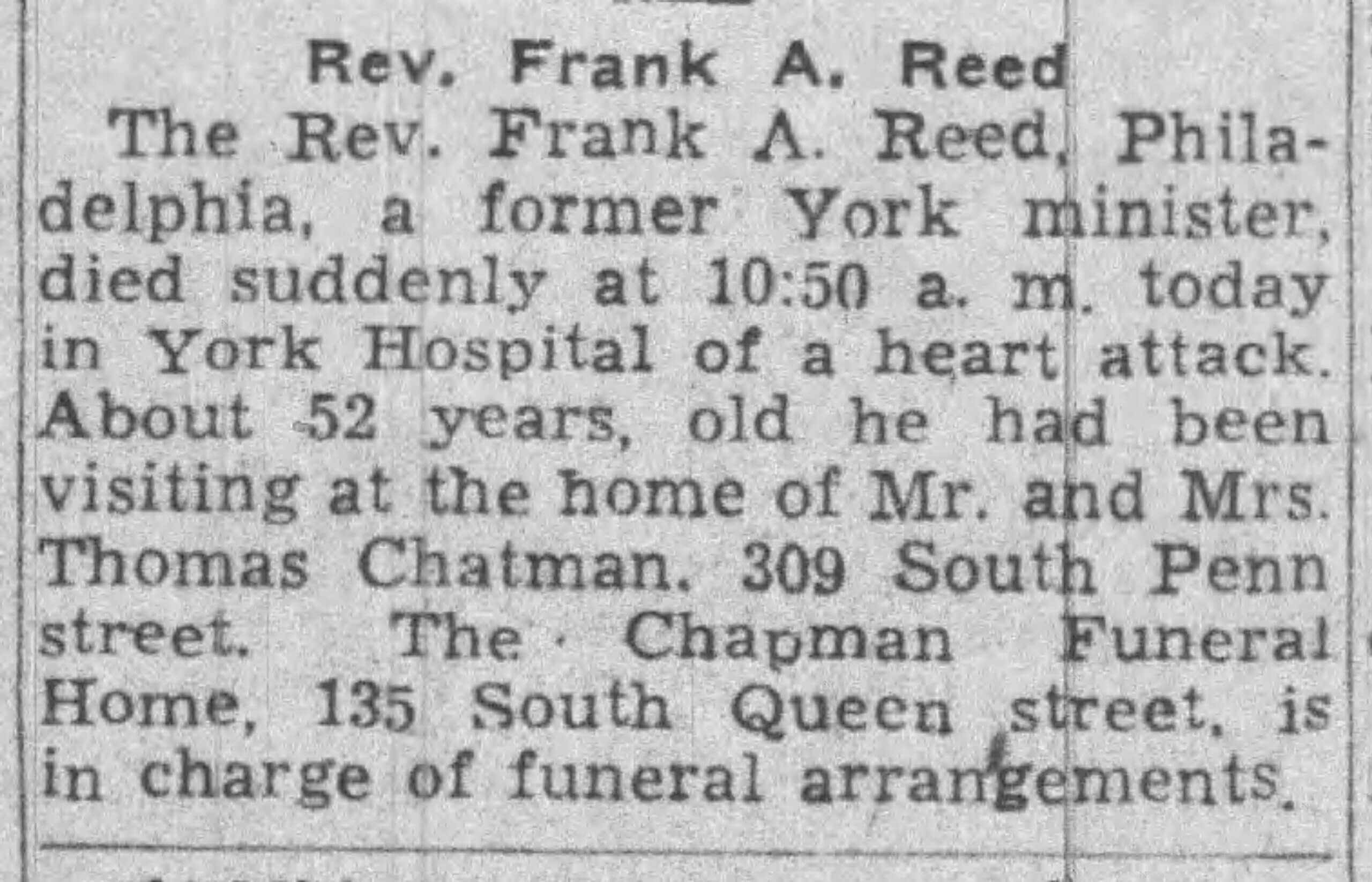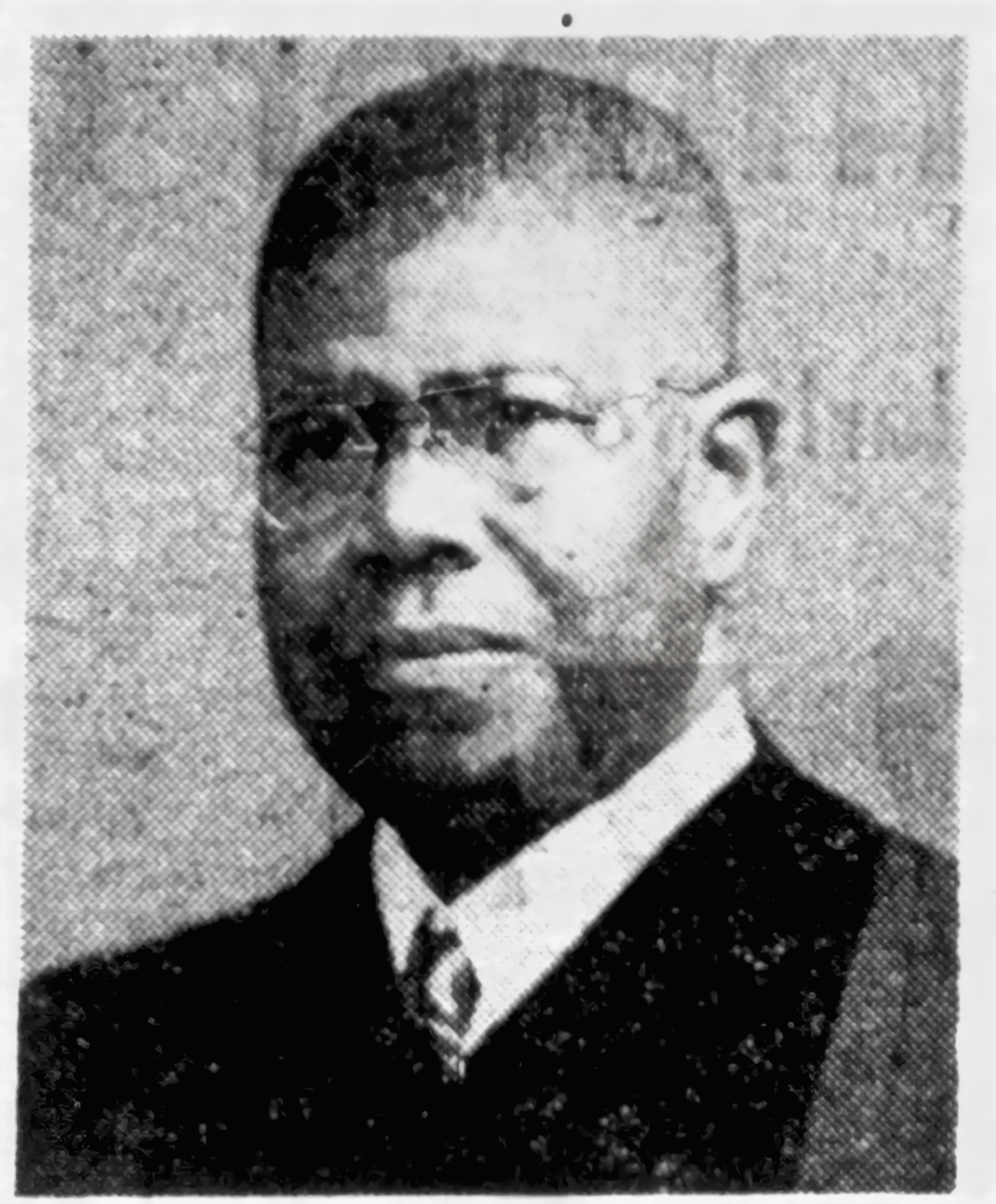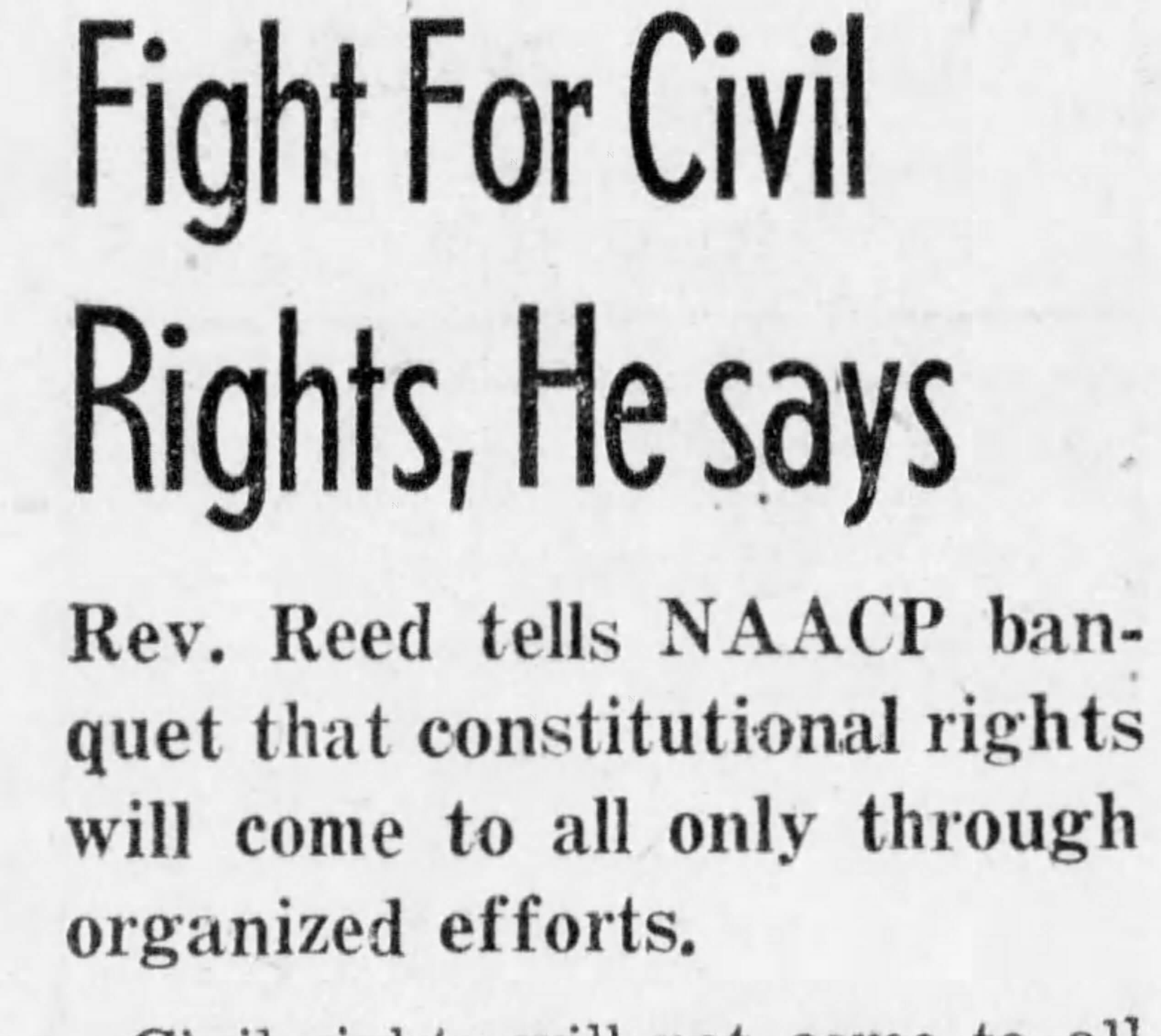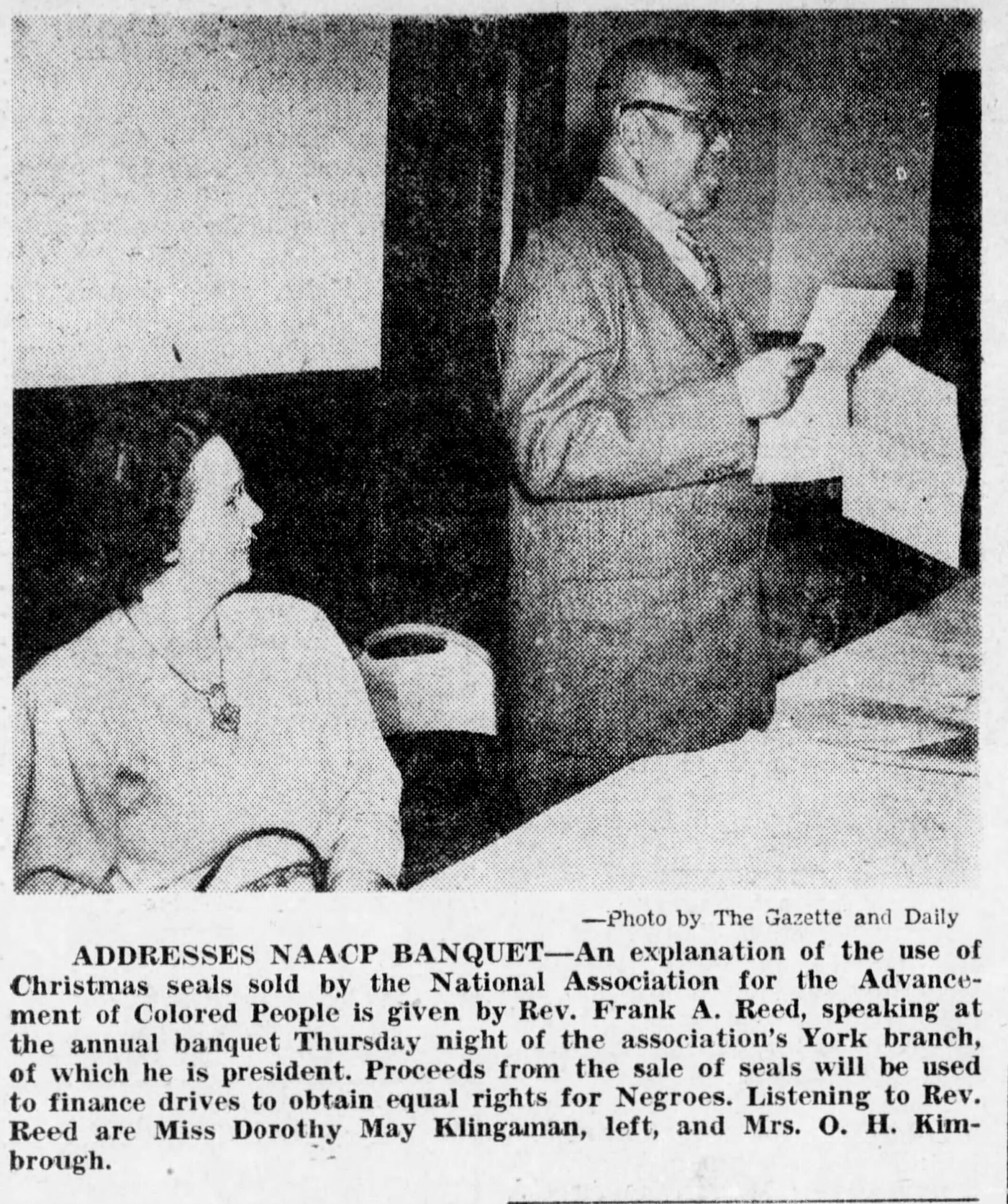Researched and written by Samantha L. Dorm | Formatted with ChatGPT 1/19/2024
Samantha L. Dorm will present The Preachers, The People, and the Praise, an inspiring presentation on the remarkable history of York’s Black Churches and their profound role in shaping social change at the History Center Museum on March 9.
Do not wait for God to do the things He has given us the power to do for ourselves.
These powerful words, spoken by the Rev. Frank A. Reed, encapsulate the life and legacy of a man whose unwavering commitment to civil rights and social justice left an indelible mark on York, Pennsylvania.
Born in Jamaica, Rev. Reed pursued education and ministry with vigor, earning a Bachelor of Science in Education and completing theological training at Temple University in Philadelphia. By 1941, his path led him to York, where he answered the call to pastor Bethlehem Baptist Church. His installation in March 1942 marked the beginning of a 12-year tenure that would not only strengthen the church but also position him as a vital figure in the fight for racial equality.
Leadership in the NAACP
In 1944, Rev. Reed was elected president of the York Chapter of the NAACP, an organization dedicated to eliminating discrimination and securing civil rights for all people of color. Under his leadership, the chapter grew to over 400 members, reflecting a robust and engaged community determined to combat systemic racism.
Rev. Reed’s presidency was characterized by action and advocacy. One of his first initiatives was petitioning the city of York to hire Black police officers, emphasizing that hiring practices should be based on merit, not race. He implored Black citizens to apply for these positions, challenging discriminatory practices head-on.
In addition to addressing local employment disparities, Rev. Reed spearheaded efforts to establish a Youth Council, encouraging young people of all races to join the fight for equality. This initiative sought to empower the next generation with the tools and vision needed to continue the NAACP’s mission.
A Voice for Change
Rev. Reed’s voice resonated far beyond York. In 1944, he represented the local NAACP branch at the Regional Inter-Racial Conference of Southeastern Pennsylvania. There, he championed the principles of equality and justice, urging the Christian Church to demand non-segregation and to lead by example. “The Christian Church organization knows no racial bounds,” he declared. “Christ cannot be conceived in terms of color or race.”
His belief in active participation rather than passive faith became a rallying cry. “It is the duty of our ministers to instruct our people to demand non-segregation and get it through normal democratic procedures,” he urged.
Defusing Racial Tensions
Rev. Reed’s leadership was tested in 1945 when racial tensions erupted at William Penn Senior High School after a violent altercation involving Black and white students. Demonstrating his commitment to fostering unity, he led the NAACP in addressing the student body to de-escalate tensions. He condemned the actions of the individuals involved but worked to ensure the incident would not stigmatize Black students as a whole. His swift action helped promote understanding and emphasized the importance of maintaining respectful relationships between races in the community.
Sources the help tell Rev. Reed's story
Newspaper clippings are from The Gazette and Dailey, The York Dispatch, and York Daily Record in the York County newspapers collection from Newspapers.com.A Legacy of Determination
Rev. Reed continued to lead the York NAACP through pivotal years, focusing on issues like job discrimination and voter rights. In 1947, he welcomed Gloster B. Current, the National Director of NAACP Branches, to York for a speech on combating employment discrimination. The event marked the third anniversary of the York chapter and reinforced its commitment to fighting systemic inequities.
At an NAACP conference in 1949, Rev. Reed reminded attendees that civil rights would not come easily. “The rights guaranteed all Americans in the Constitution will not be handed to us on a silver platter,” he warned. His words highlighted the need for organized efforts and tireless dedication to achieving equality.

Final Years and Enduring Impact
Rev. Reed stepped down as pastor of Bethlehem Baptist Church in 1953, moving back to Philadelphia to work as a special teacher in the public school system. His wife, Marguerite Powell Reed, who had been a schoolteacher and church organist, passed away in 1954. The following year, Rev. Reed died suddenly at the age of 52 while visiting York.
Though his life was cut short, Rev. Reed’s impact endures. His tenure as president of the York NAACP exemplified leadership rooted in faith, education, and an unwavering belief in the power of organized action. He was a visionary who understood that progress required both divine guidance and human effort.




